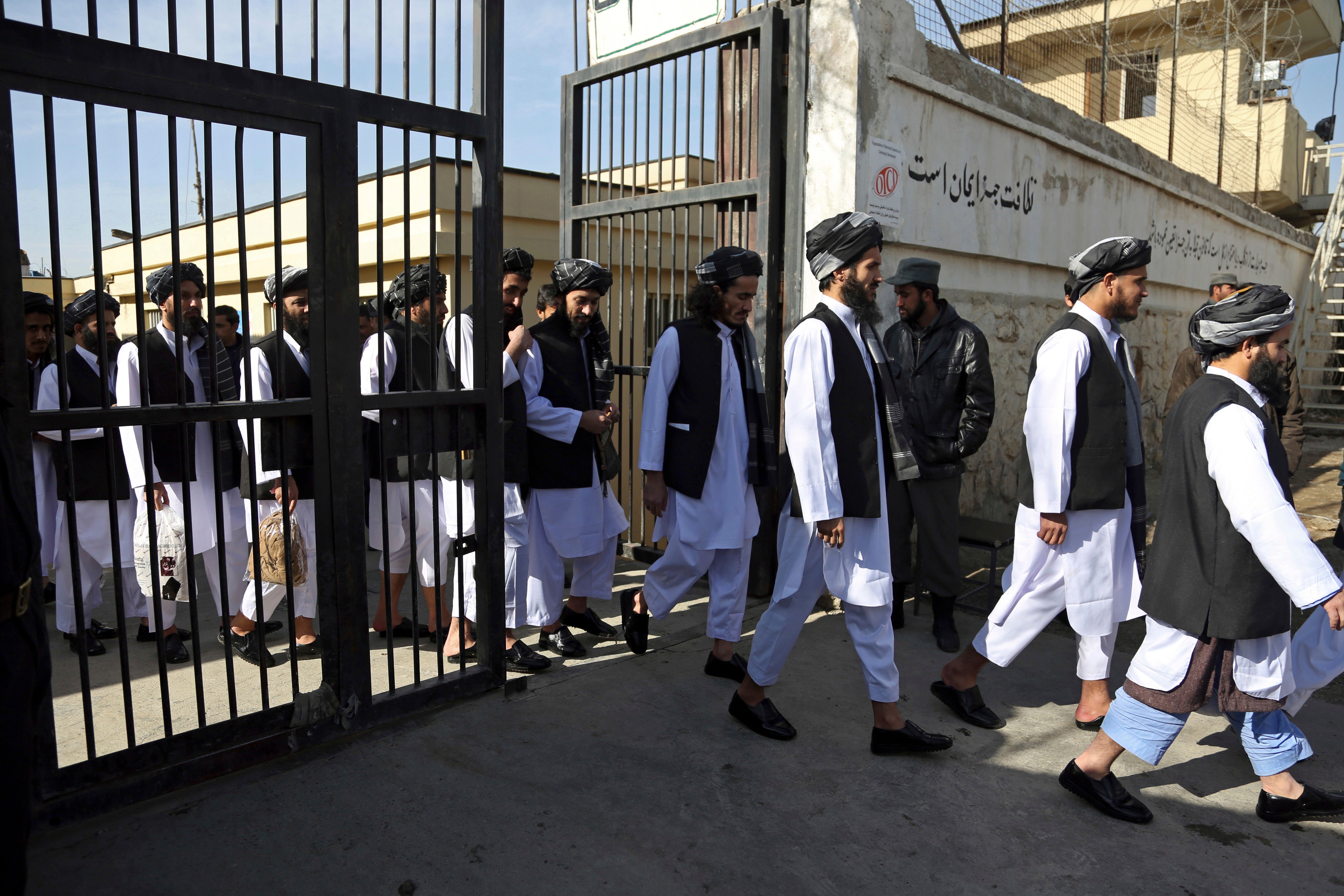UN: High torture of detainees in Afghanistan continues
A U.N. report says that nearly a third of all detainees held in Afghan detention centers say they have suffered some form of torture or ill-treatment

Your support helps us to tell the story
From reproductive rights to climate change to Big Tech, The Independent is on the ground when the story is developing. Whether it's investigating the financials of Elon Musk's pro-Trump PAC or producing our latest documentary, 'The A Word', which shines a light on the American women fighting for reproductive rights, we know how important it is to parse out the facts from the messaging.
At such a critical moment in US history, we need reporters on the ground. Your donation allows us to keep sending journalists to speak to both sides of the story.
The Independent is trusted by Americans across the entire political spectrum. And unlike many other quality news outlets, we choose not to lock Americans out of our reporting and analysis with paywalls. We believe quality journalism should be available to everyone, paid for by those who can afford it.
Your support makes all the difference.Nearly a third of all detainees held in Afghan detention centers say they have suffered some form of torture or ill-treatment, a new U.N. report said Wednesday.
According to the “Torture Report,” more than half of the allegations are from southern Kandahar province, a Taliban heartland. The United Nations expressed serious concerns about the claims, including allegations of “enforced disappearances.”
For the report, conducted jointly by the U.N. mission to Afghanistan and the U.N. Human Rights Office, U.N. officials interviewed a total of 656 detainees, held in 63 government facilities across the country, between January 2019 and March 2020.
The alleged torture included beatings, suffocation, and electric shocks. The U.N. says 30% of those interviewed provided “credible and reliable” accounts of abuse and mistreatment.
Afghan officials did not immediately respond to Associated Press calls for comment on the U.N. report. Due to the outbreak of the coronavirus, U.N. visits to the detention facilities were suspended last March.
The U.S.-backed Afghan government is holding thousands of detainees, many of them captured as part of the ongoing war with the Taliban, who are mainly ethnic Pashtun.
The Taliban have stepped up their offensive, making major gains in recent years, and now effectively control over half the country. Separately, widespread corruption and distrust of the government has undermined efforts to combat the Taliban.
The insurgents, meanwhile, have been demanding the release of thousand more Taliban prisoners, under a deal signed between the Taliban and the U.S. government last year that saw 5,000 insurgents freed. The U.S.-Taliban deal aims to end the decades-long war and facilitate the withdrawal of U.S. and international troops from Afghanistan. The Biden administration has said it plans to review the U.S.-Taliban deal.
The report said 30.3% of detainees reported torture or mistreatment, down from 31.9 % during the previous reporting period, from 2017 to 2018.
“Perpetrators must be held accountable,” said Deborah Lyons, the U.N.'s special representative for Afghanistan. “This would increase confidence in the rule of law and can be a contributing factor towards peace,” said Lyons.
“Torture can never be justified. It has lasting consequences for victims, their families, and society,” she added.
In Kandahar, 57.7% of detainees held in a police facility reported abuse. Nearly 50% of all prisoners detained by Afghan forces claim that they were asked to sign or thumbprint a document without knowing its content, said the report.
The U.N. mission does not have access to Taliban detention facilities or those of other antigovernment elements. The report only includes accusations from prisoners in detention centers of the Afghan government.